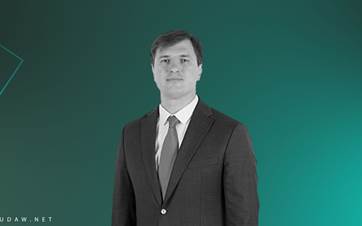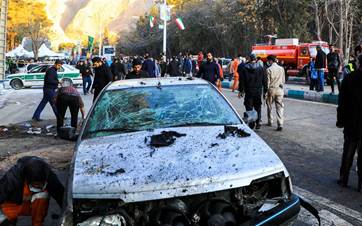We should all know who Dorothea Keist is. That she is my friend, and we have a lot of respect for each other is a personal matter and I am not writing about that. We should know her because of her films about Kurds and Kurdistan, and the work she has done to help end illiteracy among Kurdish women.
Keist studied Kurdish in Zurich, Switzerland and at the Kurdish Institute in Paris. She speaks and writes in Kurdish very well and has written a book on how to learn the language.
Right after the Kurdish popular uprising in 1991, when the region was under siege on many sides, Keist and a colleague named Cristina Karrer came to Kurdistan to produce a documentary on Kurdish women called Jiyana Me (Unser Leben or Our Life). The documentary tells the story of four women - one from northern Kurdistan [Turkey's southeast Kurdish region], one from Barzan, one from Sulaimani, and a woman from Sanandaj.
The documentary does not just tell the story of the four women, but provides a glimpse into the lives of Kurdish women as a whole, in addition to the situation the region was in at the time. Viewers are given a clear image of Kurdistan, details of daily life, and women's active involvement across many key, sensitive sectors of life. The camera lenses were precisely and sensitively used, filming abundant important scenes.
I got to know Keist in the summer of 1992 in Chamchamal. She is from Luzern, Switzerland. Luzern is one of the most beautiful cities in the world. Yet, Keist left this charming and fascinating city to come all the way to Kurdistan after the 1991 uprising and spend a large amount of time here when the region was grappling with a lack of electricity and water, and haunted by plenty of other challenges.
For years, no one could travel directly to Kurdistan, so she had to pass through neighboring countries and faced many problems at the border crossings because the officials did not want people like Keist to come to Kurdistan. At the time, she was used to changing her name to Darya Kwestani for her work.
Despite knowing that she would face all of these obstacles, Keist did not give up on her dream to make the voice of Kurdish women heard through the lens of her camera.
One day in July 1992, I sat down at the Kurdish Fine Institute in Chamchamal when Keist, her colleague, and Arif Omer visited us. Omer was working as a translator for the two women. They had been on their way to the village of Hashazini, Chamchamal, but Omer suggested that it would be important for me to join them.
Keist has a long story of friendship with the Kurdish language and culture, and the Kurdish cause. She says she had to end up in Kurdistan at some point to work with Kurds and about Kurds. In Switzerland, Keist helped the Kurdish people for decades. Her work was guided by principles and important human values.
A book on how to read and write in the Kurdish dialect Kurmanji is one of the key works by Keist. Her book includes tools and tips for women, especially Kurdish women migrating from northern Kurdistan [Turkey] to Europe.
Keist is a polyglot and a teacher. She has studied German and English literature, so she understood the value and importance of learning languages. She understood too that it is detrimental for someone to be deprived of their language. She knew that the Kurdish language was prohibited in Syria and Turkey and would say: "Let us at least allow Kurdish women, especially mothers, to learn the language."
"This is my contribution to a nation and their language to stand up again. Even a small contribution comes from a humanitarian basis and my heart," she used to say.
Keist is a pioneer in contributing to development of Kurdish language and its art, as well as paying attention to Kurds in general. Through her documentary, she filmed a significant part of the difficult life of Kurdish women. In her writings, she laid the groundwork for women to learn, those women who had lost hope that Kurdish could be a language of education and learning.
Dorothea Keist's name is important and remains loved by all. We thank her for her dedication and send her our utmost love from Kurdistan. We wish you good health, dear friend.
Sirwan Rahim is a Kurdish documentary filmmaker.
The views expressed in this article are those of the author and do not necessarily reflect the position of Rudaw








Comments
Rudaw moderates all comments submitted on our website. We welcome comments which are relevant to the article and encourage further discussion about the issues that matter to you. We also welcome constructive criticism about Rudaw.
To be approved for publication, however, your comments must meet our community guidelines.
We will not tolerate the following: profanity, threats, personal attacks, vulgarity, abuse (such as sexism, racism, homophobia or xenophobia), or commercial or personal promotion.
Comments that do not meet our guidelines will be rejected. Comments are not edited – they are either approved or rejected.
Post a comment